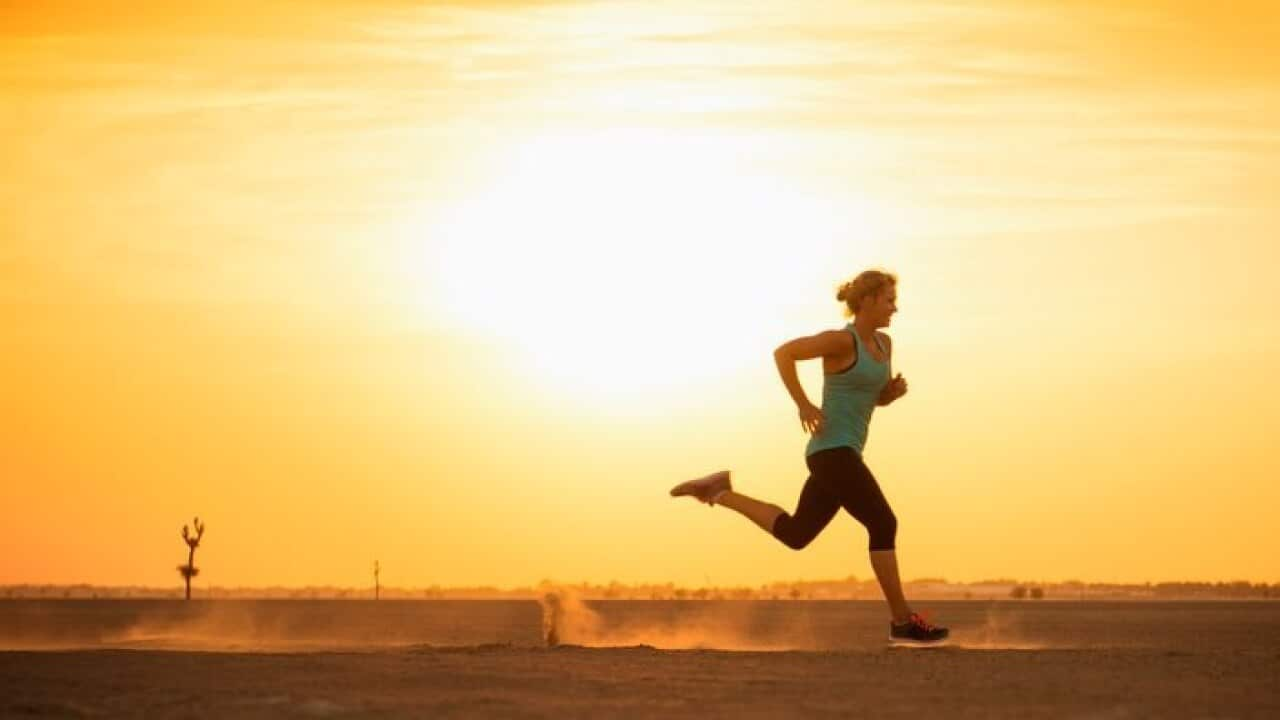Growing up, I was always the kid picked last in the sports team. When I was 39 I decided it was time to try bring my weight down. I wanted to feel healthy and comfortable within myself and thought 'running is cheap. I'll try that'. I picked up the Couch to 5k app and quickly started to see fitness gains and soon I really enjoyed running.
At the time, I was still in the closet – I still hadn't come to terms with my own identity and my plan was to continue to ignore and repress my gender identity. That had a lot of mental health consequences and running was one of the only times my mind was quiet. I would look at the world around me, being in the moment without any deep thoughts – it was wonderful.
Around the time I finished the two-month Couch to 5k program in 2015, started in my area. It's a free 5km community running event every Saturday morning, and I found a wonderful community to run with each week. I started to ramp up my mileage in training and was surprised to discover I was actually quite good at running. I pushed myself really hard and got a PB of 19 minutes and 41 seconds for 5km. It was an amazing moment, finding success and joy and happiness.
I started to ramp up my mileage in training and was surprised to discover I was actually quite good at running. I pushed myself really hard and got a PB of 19 minutes and 41 seconds for 5km. It was an amazing moment, finding success and joy and happiness.

Ada Macey. Source: Supplied
In some ways, I think I was running to chase away the demons I was dealing with from my gender dysphoria. Eventually I was running up to 90km a week, then I got injured, and it was during that time that I came out of the closet.
I began hormone therapy, knowing that I was going to lose the ability to reach the same running times that I was so proud of. It was a real struggle to get my head around because my running success was the one thing that had given me pride in my body.
The hormones change everything – they impact every part of you in ways that you don't predict. They've changed my body hair; my feet have shrunk; I've lost 5cm of height; the hair on my head has regrown and thickened; my body fat has gone from 15 to 23 per cent; and my thighs rub together when I run.
When I push myself on a run, everything feels harder – my heart-rate is higher, I find myself short of breath and my recovery is a bit slower. My post-transition PB is 23 minutes, which is still an excellent time in the women's category, but if I'm honest, I still haven't found complete peace of mind about having such a slower time.
I'm in my 40s, so my running times were going to come down with age, but it's just been accelerated for me because the hormones have made such a radical difference.
Parkrun keep records of everyone's performance and I didn't want to start a new account with my new name because I wanted to keep hold of that history. I put a lot of blood and sweat into those times, but at the end of the day, I was powered by testosterone. I spoke with parkrun about this and we decided to mark my past runs as "assisted", which meant I could still see my times and the runs I did, but it wouldn't count as anything official because that would be unfair for the other female competitors.
I'm still pushing myself in running but I'm deliberately trying to find a better balance – I play roller derby now and I cycle to work. I'm trying to make it a more mentally sustainable approach to fitness.
Long-term, reducing my running times is just a blip on the radar – the changes, the comfort and the ability to walk the world as myself more than makes up for it.
As told to Kimberley Gillan.



